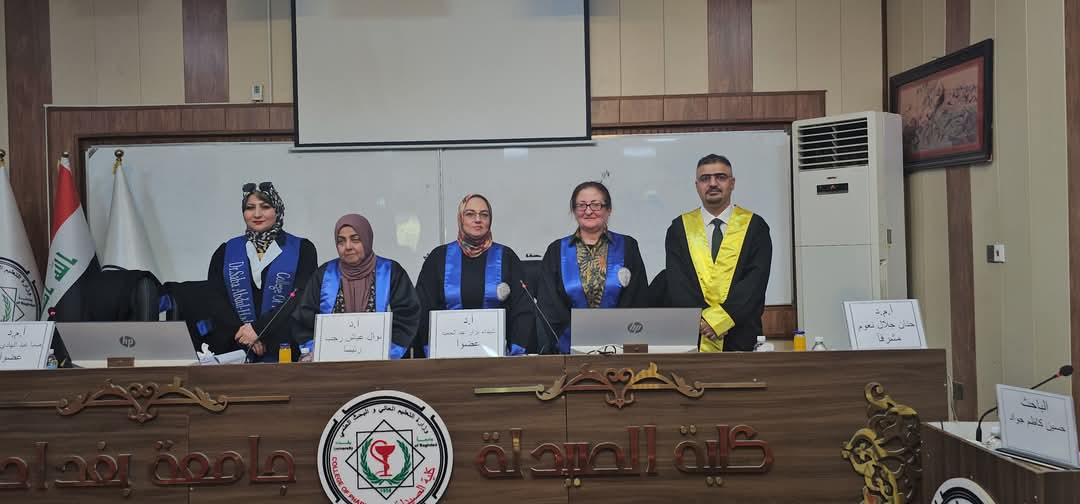The College of Pharmacy discussed the PhD dissertation entitled “Formulation and In-vitro/In-vivo Evaluation of Nose to the Brain Delivery of Nimodipine Loaded Spanlastic Nanovesices “by the student Hussein Kadhim Jawad Al-kufi and his supervisor, Assistant Professor Dr. Hanan Jalal Kassab, at the pharmaceutics Department.
The study aimed to create nimodipine-loaded spanlastic nano-vesicles using span 60 and 3 different edge activators (Tween 20, 40 or 60) using factorial design to obtain the optimal formula depending on the particle size, polydispersity index and entrapment efficiency, evaluate their in-vitro release properties, deformability index, and Zeta potential. nimodipine- loaded spanlastic nanovesicles were added to an in-situ gel for brain delivery and compared with intravenous nimodipine in rats for pharmacokinetic analysis.
The study included prepared nimodipine-loaded spanlastic nano-vesicles by ethanol injection method as spanlastic dispersions (81 formulas), evaluated, characterized and optimized.
The results showed that the optimized spanlastic dispersion, had the highest entrapment efficiency among other formulas, nanovesicles in size. Following dialysis diffusion kinetics, the in vitro release studies showed that spanlastic nanovesicles released (90.21%) of nimodipine after 12 h. The in vivo studies using male rats showed that the spanlastic in-situ gel was biocompatible and did not cause any local nasal tissue irritation.
The study recommended Long-term stability assessment of the prepared formula along with expiration date estimation.




